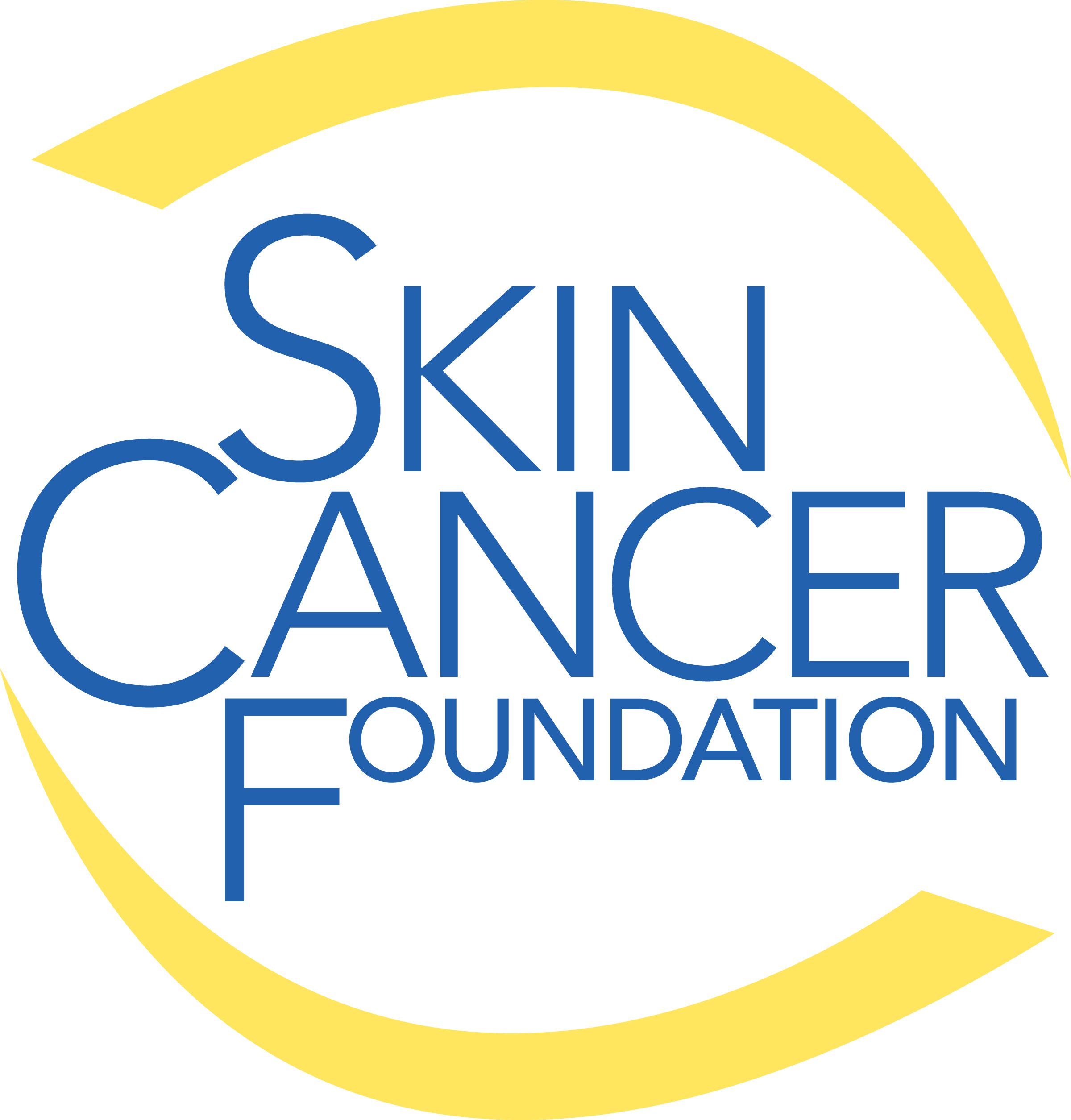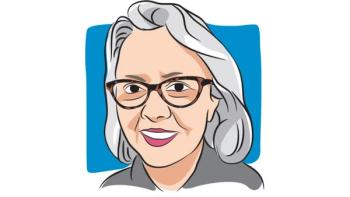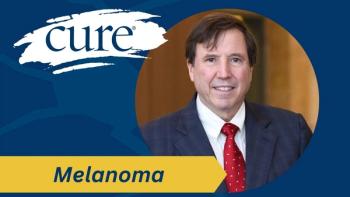
Raising Awareness Around Skin Cancer

Transcript:
Kristie L. Kahl: Skin cancer is the most common cancer in the country, but there is still a lack of awareness. Why do you think that is?
Jeremy Brauer: There are a lot of wonderful campaigns out there, a lot of education that talk about sunscreen. But, nonetheless, we see patients in the office who come in for skin exams or individuals who even have a history of skin cancer, and there still seems to be this general lack of awareness of specific types of skin cancers. The fact that, even though when treated early have a very high cure rate, when left alone and untreated can lead to death.
Kristie L. Kahl: Last year, the Skin Cancer Foundation commissioned a survey to gauge awareness of the disease in the United States. Can you talk about this?
Jeremy Brauer: The general lack of awareness and understanding regarding skin cancer in general prompted this study. The Skin Cancer Foundation, along with Regeneron and Sanofi, commissioned an online survey, which was conducted by the Harris Poll with roughly 2,000 adults (aged 18 years and older) in the United States.
They evaluated overall understanding and awareness of skin cancers in general. (They) also specifically asked questions about squamous cell carcinoma basal cell carcinoma and melanoma. A lot of the interesting findings revolved around cutaneous squamous cell carcinoma. The one thing that I found very interesting was almost three-quarters of those that were surveyed, were generally unaware of cutaneous squamous cell carcinoma. Just over 40% of those had never even heard of cutaneous squamous cell carcinoma. To put that inti perspective with melanoma, that same 40% were somewhat unaware of melanoma, but only, I believe, around 10% had never heard of melanoma before.
Kristie L. Kahl: Why are individuals less aware of cutaneous squamous cell carcinoma compared with melanoma?
Jeremy Brauer: There are a lot of theories behind this. There is no dedicated cancer registry for squamous cell carcinoma compared to melanomas. In general, most individuals do not consider squamous cell carcinoma or even non-melanoma skin cancers as deadly, whereas, melanoma we know is deadly. We hear about it in the news of celebrities and famous politicians who are diagnosed and have passed from the disease. The more recent in treatment have revolved around metastatic melanoma. I think they are all important. They all raise awareness for skin cancer, specifically for melanoma, but to some degree, people look at the non-melanoma skin cancers as “good cancer.” In truth, there is no good skin cancer. These skin cancers if left alone, while they might not metastasize, can cause invasive damage locally and cause death that way as well.
Kristie L. Kahl: What is the number one thing we need to be raising awareness on right now?
Jeremy Brauer: People need to understand that there is no such thing as a “good skin cancer.” It is a cancer, regardless of the organ. Squamous cell carcinoma, there are more cases of that diagnosed every year than breast, prostate and lung cancers combined. Two of the top three cancers in Americans are skin cancers. Number one being basal cell carcinoma and number two being squamous cell carcinoma. It is very prevalent.
The good news is, if we are aware of these carcinomas and we pay attention and we prevent them, those numbers can drop significantly. Additionally, if you are diagnosed with a skin cancer or you do notice something new, unusual or changing, early detection and intervention results in a 99% cure rate. I think it’s very important that individuals are aware of what to look for or even once they do notice something, they are aware of what to do and who to call. That is how we are going to get these numbers down.
Kristie L. Kahl: How can someone determine if a product is sun safe?
Jeremy Brauer: The Skin Cancer Foundation has done a lot of great work with this, working with federal government and industry. As mentioned earlier, the most important thing when looking at a sunscreen label is looking at whether it has both UVA and UVB protection. For a long time, we focused on the ultraviolet B, which everyone more commonly knows as SPF (sun protection factor). While UVB is the one that causes not just skin cancer but sun burns, UVA also can cause skin cancer in addition to more of the aging of the skin. That is why it’s very important that we are protecting against both UVA and UVB.
In general, though, we should look at the number of SPF. While most will say a minimum of 15, I tend to tell my patients a minimum SPF of 30, applied appropriately. This depends on what level of activity you plan, applying appropriately throughout the day is the best way to determine which sunscreen you should use.
Kristie L. Kahl: The Foundation has Destination Healthy Skin. Can you talk about that?
Jeremy Brauer: I was fortunate enough to be a part of it. Destination Healthy Skin is a fantastic program. It’s a mobile education and detection RV that drives around the country. I think they accumulated over 10,000 miles this most recent summer. You have the ability to sign up and come in and get a toal body skin evaluation by a board-certified dermatologist. I was fortunate enough to do this in mid-town Manhattan.
It also educates individuals, those who maybe weren’t interested in getting a skin check, there is lots of materials available outside of the RV. We had the opportunity to speak with individuals and answer questions. It’s a really great program.
Kristie L. Kahl: The foundation has also lobbied, can you talk about some of these areas?
Jeremy Brauer: The Skin Cancer Foundation, in addition to the Big See Campaign and the mobile unit, they work tirelessly with local and federal government to raise awareness, look toward methods of prevention and detection. In some of these more specifically, we’re talking about tanning beds. We talk about prevention and we know history of use of tanning beds before the age of 35 significantly increases your risk of developing skin cancer. So, they’ve made great strides and worked tirelessly to institute bans in underage tanning, reduction in use overall and changing a lot of the laws both locally and nationally. That was a really wonderful accomplishment.
Also with the sunscreen, there has been a lot of focus on sunscreen, both at the national and international level looking at specific ingredients. The Skin Cancer Foundation has been involved in that conversation since the very beginning. They also have their own seals that they along with industry have been placing on labels to make it more user-friendly for consumers to understand what is considered a safe SPF. If a sunscreen has that seal of approval, is it active, is it appropriate to use if you know you’re going to spend countless hours outside or a daily use seal for going to and from work. They’ve also worked with the FDA, who has approved physical blockers, mainly zinc and titanium dioxide that are safe and effective and are to be used in sunscreen. And they’re looking to gain more information with the chemical sunscreens. The Skin Cancer Foundation has been right there applauding that effort and aiding in any way that they can.
Kristie L. Kahl: What is the best way for others to get involved to raise awareness?
Jeremy Brauer: We live in the day and age of social media. It’s a much more interconnected world and I think any time individuals educate others and speak about their own experiences, it only empowers others. If you are someone who has survived or was diagnosed with skin cancer and took the appropriate steps of seeing your board-certified dermatologist and getting the appropriate treatment — speak out about it if you’re comfortable. Let others know that this is an experience that might sound crazy upfront, but at the end of the day, your skin cancer was cured by the actions you took.
Similarly, I think raising awareness through education, the Skin Cancer Foudnation website and the resources they provide are fantastic. All of these things are great ways to continue to educate and raise awareness around skin cancer.
Transcription edited for clarity.




